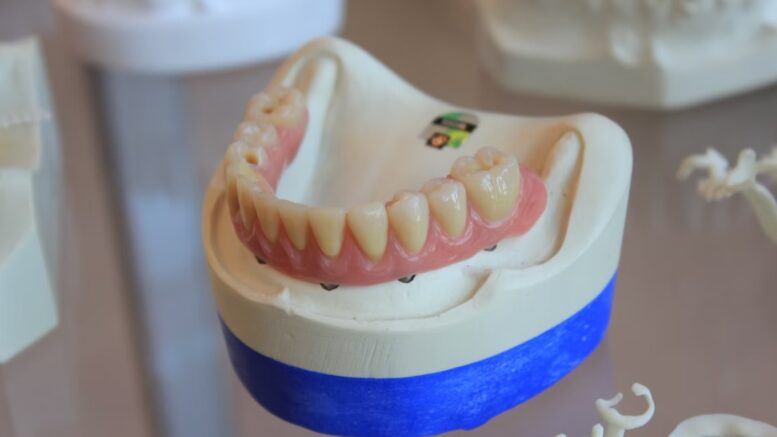For a lot of people, dentures serve as an excellent tooth replacement solution. This is because, regardless of the number of teeth you have lost, wearing dentures will help you gain a good quality of life by replacing those lost teeth, appearing and feeling as natural as possible while also completing your smile.
As much as they feel natural, wearing dentures can be challenging at first, especially when it comes to eating with them. A good number of patients report experiencing certain challenges when they first try eating with dentures. Thankfully there are ways around these challenges, and below are some dentist recommendations on how to properly eat with dentures.
Common Challenges With Dentures
Some of the common challenges wearers report facing when they first start to eat with dentures include;
- Chewing Difficulties – Dentures are foreign objects in the mouth, and their unfamiliar feel and fit can make chewing difficult during the first few days (even weeks) of getting them fitted. Wearers will need some time to adjust to their feel and hone the coordination needed to efficiently bite and chew different types of food while wearing them.
- Shifting Prosthetic – New dentures sometimes don’t fit snugly and securely around the gums. This loose fit can cause them to shift or slip when you are eating. Luckily, it is a problem that can be easily fixed with denture adhesive. Alternatively, you can google the popular phrase, how to find denture repairs near me in order to find professionals to carry out an adjustment to the fit of the dentures.
- Excess Saliva – Wearing dentures can also stimulate saliva production, which may result in excess saliva in the mouth. This excess saliva can then make it a bit challenging to control the movement of food in your mouth when eating.
- Gum and Mouth Soreness – It is not uncommon for your mouth and gum tissues to become tender or sore as they adapt to having your dentures in place. However, this soreness can make eating food (especially the spicy kind) very unpleasant.
- Changes in Taste and Sensitivity to Temperature – Dentures can initially impact the way food tastes in your mouth. The temperature (hotness or coldness) of foods and drinks may also be impacted.
Tips for Eating With Dentures
Avoid Chewing From Your Front Teeth
Your dentures are at a higher risk of shifting if you bite down on food (especially hard and chewy foods) with your front teeth. Avoid chewing with your front teeth and instead focus on chewing with the sides of your teeth. If you need to bring food to the back of your mouth, ensure to make use of just your tongue. Food should also be slowly and fully chewed before swallowing.
Slowly Chew on Both Sides
Chewing your food slowly and thoroughly on both sides of your mouth helps you to quickly get used to the sensation of chewing with dentures. It also helps prevent the possibility of choking. To stay on track, you can keep count of the number of chews on each side. Cutting your food into smaller pieces can also help you chew easier and more efficiently.
Consider a Liquid Diet
This is a good idea for the first few days after getting new dentures. The liquid diet can include foods like; soup, pudding, oatmeal, smoothies, and apple sauce. Going on a liquid diet during those first few days gives your sensitive gums the opportunity to adjust to the new dentures. It also helps you minimise discomfort when you finally move on to solid foods.

Be Careful When Eating Sticky Foods
Sticky foods such as; gums, toffees, chocolates, and certain berries have a tendency to get stuck between the dentures and the gums. Apart from being very uncomfortable, this can also increase your chances of infection. This is not to say you shouldn’t enjoy these foods while wearing dentures. Just make sure that you thoroughly clean your dentures and your mouth right after consuming them.
Avoid Consuming Very Hot Liquids
If you’re someone who enjoys drinking tea, coffee, or hot cocoa, you might want to exercise some caution while drinking them with your dentures in. The insulating properties of your dentures may prevent you from realising that a drink is very hot until it is too late. When drinking a hot beverage, try to first take a small sip to confirm its safety before drinking.
Excess heat can also warp the plastic of your dentures and alter their fit, so it is important that you reduce the amount of hot liquids you consume while wearing dentures.
Conclusion
Dentures are a great teeth replacement solution, but wearing them requires a little getting used to. If you follow the tips above, you’ll be eating normally with your new dentures in no time.
